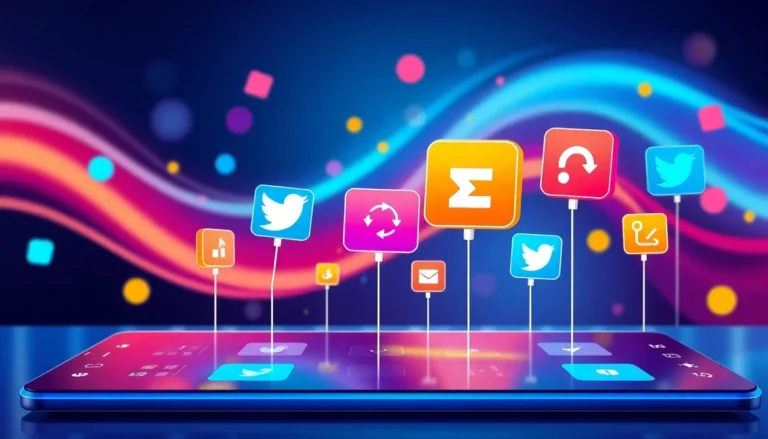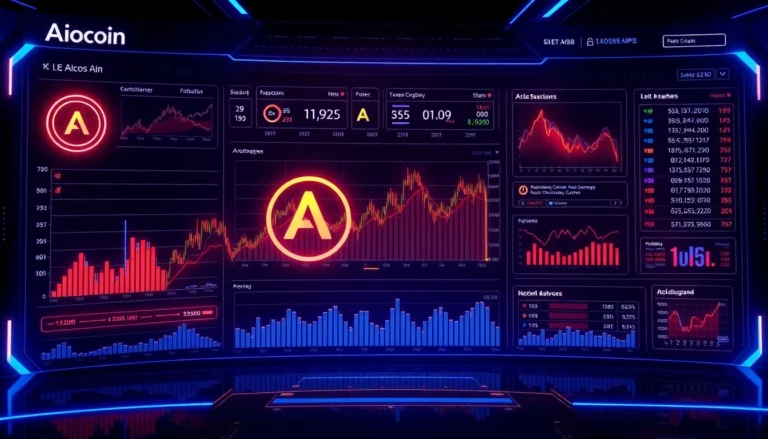What Is Technology?
Definition and Concept
Technology is fundamentally defined as the application of scientific knowledge for practical purposes. It encompasses a broad spectrum of tools, systems, and methods that enhance our capability to perform tasks efficiently and effectively. According to the technology definition, it varies significantly across different domains and has evolved over the centuries. At its core, technology aims to solve problems and improve human life by fostering innovation and creativity.
History of Technology
The evolution of technology dates back thousands of years, beginning with simple tools made from stones and wood during the Stone Age. These primitive inventions were crucial for survival, enabling early humans to hunt, gather, and protect themselves. As civilizations developed, so did technology.
The Bronze Age saw the advent of metallurgy, improving tools and weapons. Subsequently, the Iron Age further revolutionized technology with stronger and more durable materials. The Industrial Revolution marked a significant turning point in technological history, characterized by mechanization and the rise of factories, which significantly increased production capabilities. The 20th century introduced electrical engineering, telecommunications, and finally, the digital revolution, profoundly changing how we communicate, work, and live.
Importance in Daily Life
Technology plays an integral role in our daily lives. From smartphones that connect us to the world to smart home devices that enhance our living spaces, technology impacts every aspect of our routine. Its importance can be seen in:
- Communication: Instant messaging, social media, and video conferencing tools keep us connected with family, friends, and colleagues across the globe.
- Healthcare: Advances in medical technology have led to improved diagnostics, personalized medicine, and the development of life-saving treatments.
- Education: Technology in education, such as online learning platforms and interactive tools, has transformed traditional teaching methods, making learning more accessible.
- Transportation: Innovations in travel, from electric vehicles to smart public transportation systems, not only improve convenience but also address environmental concerns.
Types of Technology
Information Technology
Information technology (IT) has become a cornerstone of contemporary society. It encompasses the use of computers, software, networks, and data to manage information effectively. IT supports various functions, including:
- Data Management: Organizations rely on IT for data collection, storage, and analysis, enabling data-driven decision-making.
- Cybersecurity: Protecting sensitive information from cyber threats is paramount. IT provides tools and strategies to safeguard data integrity.
- Software Development: Custom software solutions enhance business efficiency and address specific needs within an organization.
Consumer Electronics
Consumer electronics refer to devices intended for everyday use, particularly in personal entertainment and communication. These include:
- Smartphones: Mobile phones that integrate computing power, allowing users to access information and services on the go.
- Tablets: These portable devices combine the functionality of a computer with the convenience of a phone.
- Smart TVs: Televisions that connect to the Internet, allowing for streaming services and interactive content.
The rapid evolution of consumer electronics has led to increased connectivity and convenience, reshaping our entertainment and communication landscapes.
Emerging Technologies
Emerging technologies signify the latest advancements that have the potential to shape the future. They include:
- Artificial Intelligence (AI): AI technologies drive automation and perform complex tasks, revolutionizing industries from healthcare to finance.
- Blockchain: This technology enables secure, transparent transactions, paving the way for innovations in finance, supply chains, and record-keeping.
- Quantum Computing: This nascent technology promises immense processing power, facilitating breakthroughs in research and problem-solving across various fields.
The Role of Technology in Business
Enhancing Productivity
Technology significantly boosts productivity across sectors. Businesses leverage tools such as project management software, automation, and data analytics to streamline operations. For example:
- Automation: Repetitive tasks, such as invoicing or inventory management, can be automated to minimize errors and free up employee time for more strategic work.
- Collaboration Tools: Software platforms like Slack and Trello foster teamwork, enabling seamless communication and project tracking.
Shaping Consumer Behavior
Technology profoundly influences consumer behavior. Businesses now utilize data-driven marketing strategies to understand customer preferences and personalize experiences. For instance, targeted advertising leverages data analytics to reach specific demographics, enhancing conversion rates.
The rise of e-commerce has also transformed shopping habits, leading consumers to prefer online purchasing due to convenience and accessibility. Companies that harness the power of social media can engage directly with their audience, building brand loyalty and community.
Tools for Communication
Effective communication is crucial for any successful business. Technology provides multiple channels for interaction, both internal and external. Key tools include:
- Email: Still one of the most widely used business communication tools, email allows for formal and informal exchanges.
- Video Conferencing: Platforms like Zoom or Microsoft Teams have made remote work feasible, bridging distances and fostering collaboration.
- Social Media: Businesses utilize social media not only for marketing but also to gather feedback and engage with customers directly.
Challenges and Ethical Considerations
Data Privacy Concerns
As technology evolves, so do concerns regarding data privacy. With more information collected online, the potential for data breaches increases. Consumers demand transparency regarding how companies handle personal data, spurring regulations like GDPR in the EU. Organizations must prioritize data security through encryption, regular audits, and comprehensive privacy policies.
Technological Dependence
While technology offers numerous benefits, over-reliance can lead to challenges. For instance, businesses may become vulnerable to cybersecurity threats or face operational disruptions during system outages. It’s essential to have contingency plans and alternatives to mitigate risks associated with technology dependence.
Impact on Employment
The automation and innovation driven by technology raise concerns about job displacement. Certain roles may become obsolete, while new job categories will emerge, requiring workers to adapt their skills. Upskilling and reskilling initiatives are vital to prepare the workforce for the future job landscape shaped by technological advancements.
Future Trends in Technology
Artificial Intelligence Developments
AI continues to evolve with advances in machine learning and natural language processing, leading to broader applications in various industries. Future developments could include:
- Improved Personal Assistants: AI-driven assistants will become more adept at understanding context and delivering tailored responses.
- AI in Healthcare: Enhanced diagnostics and personalized treatment plans through AI can significantly improve patient outcomes.
Sustainable Tech Innovations
Emerging technologies increasingly focus on sustainability, with innovations aimed at reducing carbon footprints and promoting renewable energy. For instance, innovations in solar technology and electric vehicles are set to play pivotal roles in combating climate change. Businesses adopting sustainable technology not only contribute to environmental goals but can also enhance their brand reputation and attract conscious consumers.
The Internet of Things (IoT)
The Internet of Things (IoT) connects devices, enabling them to collect and share data seamlessly. Future trends may include:
- Smart Cities: Integrating IoT devices can enhance urban infrastructure, improving traffic management, energy consumption, and public safety.
- Healthcare Monitoring: IoT devices can monitor patient health remotely, enabling timely interventions and proactive care.








